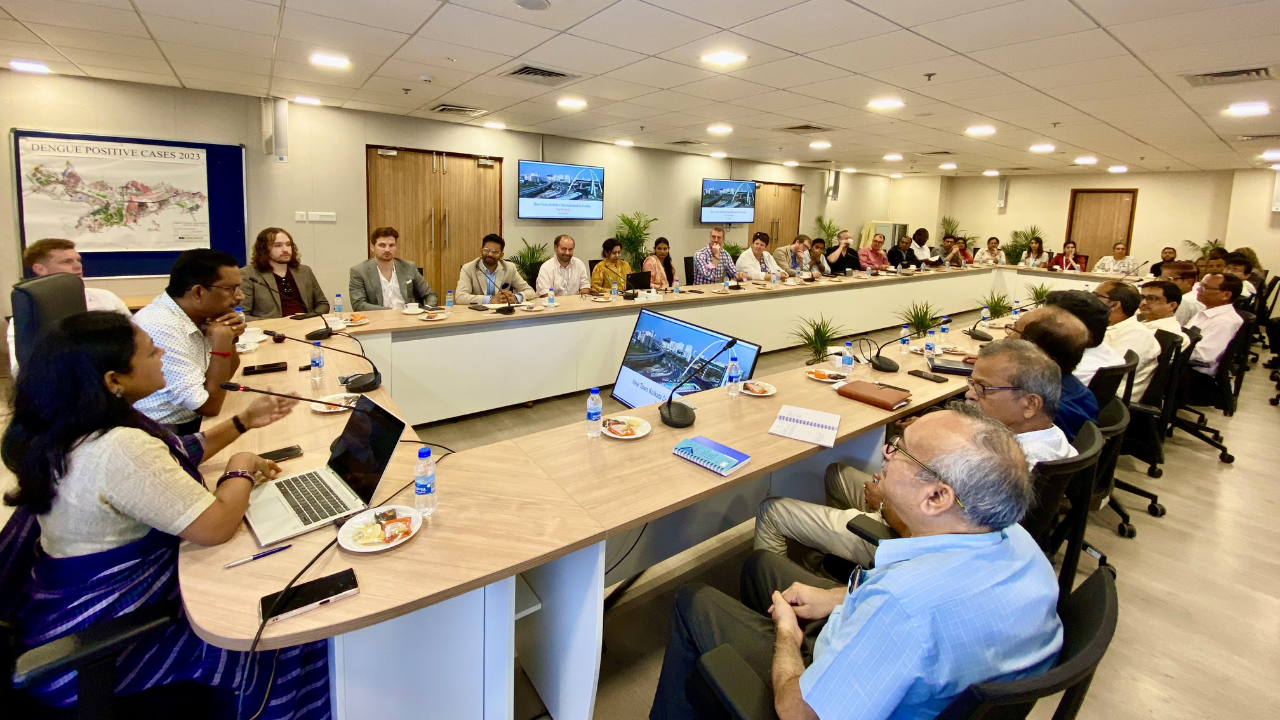Global sustainable development is currently facing the problem of insufficient integrated resources. The transformation of key technologies is urgently required for economic and social development to higher quality. As one of the pillar industries of the 21st century, the bio-industry has great development prospects in the fields of sustainable energy development, agricultural production, pharmaceutical research and development, environmental protection technology, technology manufacturing and professional services, and plays a significant role in solving the current socio-economic development conflicts.
JIN Yi, a biomedical expert and senior clinical monitor, is a senior expert engaged in biomedical clinical laboratory analysis in China. With rich experience in pharmaceutical analysis, he has been engaged in biopharmaceutical clinical work in national drug clinical trial bases, domestic well-known innovative drug clinical development, world-class biopharmaceutical research and development and other institutions, and achieved professional success in pharmaceutical field. Through Mr. JIN Yi’s experience sharing and long-term observation of biopharmaceutical development at home and abroad, he expects new insights for the training of domestic biopharmaceutical professionals and the development of biopharmaceutical industry.
“I started working in the pharmaceutical field after completing my studies, first in drug analysis at an influential pharmaceutical company in Nanjing, which focused its new drug development on gastrointestinal and central nervous system drugs and had a very mature drug development and management system. Therefore, during this time, I was able to familiarize myself with the whole process of drug development and study analysis, which increased my professionalism and provided sufficient preparation for my future work at the National Drug Clinical Trial Site of Soochow University’s Second Affiliated Hospital.” JIN Yi believes, that biomedical research and development attaches great importance to the overall quality of practitioners. The starting point of the course is simply preparation for starting a career. In order to provide certain services in the field of biomedicine, it requires a very solid professional foundation, mature practical skills and experience that is familiar with the overall process. In addition, highly conscious learning ability and innovation also play an important role. These skills helped JIN Yi get the opportunity to participate in clinical trials at the National Drug Clinical Trial Base of Soochow University Second Affiliated Hospital and well-known biomedical research and development institutions at home and abroad.
Regarding the current development of biomedicine at home and abroad, Mr. JIN Yi formed his own opinion based on the medical information he had mastered. “Currently, the growth rate of the global pharmaceutical market is still very high. According to statistics, we can know that the growth rate of the market is basically kept in the range of 6% and the economic scale has already exceeded two trillion dollars in the past few years. However, in the actual competition of the biomedicine market, mainly developed countries, especially the United States, in the national strategy of developing biotechnology planning and continuous investment in scientific research, have a decisive influence on the innovation and development of the biomedicine industry of the United States. According to the authoritative list of the world’s most innovative companies released in recent years, the United States won seven out of 10 spots in 2018 and all of 2019, and the United States ranked first in the total number of high-quality biomedical publications and patents in recent years years. It shows that US investment and R&D capability in biotechnology is really paying off.” Mr. JIN Yi also specifically mentioned the current situation of research and development of new drugs and generic drugs. “It is worth noting that under the current update of biomedical technology, the production of new drugs is mainly carried out in the major industrialized countries in Europe and the United States, as well as in Japan, South Korea and other countries in Asia. The R&D industry of new drugs in these countries has accumulated pharmaceutical patents, long-term industrial policies, advanced talent training methods, and technological innovation incentive mechanisms. It has been growing continuously since 2013, and even hundreds of new drugs can be added every year, accounting for most of the world’s production of new types of drugs. There is also a lot of potential for generics in pharmaceutical research and development. Especially for developing countries, there are many obstacles in the way of independent drug research and development. Developed countries have strict regulations on pharmaceutical patents, and it is easy for developing countries to make advances in the field of medicine. The technological path of imitation of generic drugs makes it a relatively easy way for the pharmaceutical industry in developing countries to achieve similar or even the same effectiveness as the original drug in terms of raw materials and formulations. However, in the field of research and development of new drugs, developing countries also need the accumulation of technology and professional talents.”
Regarding the observation of the development of biomedical industry in developed countries and several suggestions for the development of related industries in China, Mr. JIN Yi said: “When analyzing international competitive advantages, the classical analysis – Michael Porter Diamond Model – is often used, through which we can Be able to clearly understand the advantages and disadvantages of China in the international competition of the biomedical industry. China’s current size of the biopharmaceutical industry and the market demand to maintain a rapid growth pattern mark the gradual realization of the country’s enormous development potential in the biopharmaceutical industry. In addition, the state encourages social funds to invest in biomedical research and development with special programs, and the industrial system and regulatory system are further improved. Nowadays, China’s biopharmaceutical industry has made solid progress. However, there is still a certain gap in pharmaceutical production technology and R&D technology, such as the variety of diagnostic reagents, which is not satisfactory compared to a wide variety of diagnostic reagents in the major industrialized countries. Therefore, I hope that, within the framework of good national policies, China’s biopharmaceutical industry can quickly realize industrial alliances, continuously increase research investment, improve research and innovation incentive mechanisms, improve international technical exchanges, etc., and provide solid strength for the high-quality development of China’s biopharmaceutical Industry.” (Reporter: Sofia Wong)




























